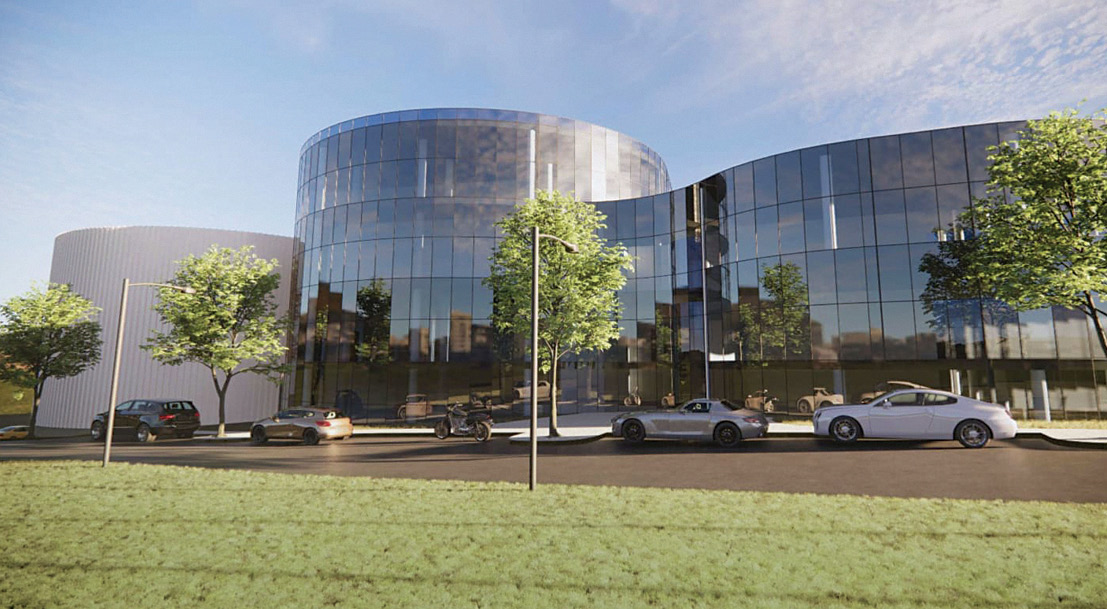Associated for centuries with such legends as St. Hildegard of Bingen and Volker von Alzey (a minstrel in the court of Burgundy in Worms who was a central character in medieval nibelungen mythology), the village of Alzey in Rhineland-Palatinate southwest of Frankfurt is about to welcome an investment of legendary scale.
Indiana-based Eli Lilly and Company in November announced it would construct a new $2.5 billion manufacturing site there to “further expand the company’s global parenteral (injectable) product and device manufacturing network and support an increased demand for Lilly’s medicines, including its diabetes and obesity portfolio.”
“As we look to usher in the next generation of medicines, we’re looking for people and partners who share our passion for improving health outcomes,” said Ilya Yuffa, executive vice president and president, Lilly International. “With this new investment, we hope to spark a new era of collaboration and innovation in Germany and the European Union defined by our shared purpose to find lasting solutions for patients.”
Pending local approvals and permits, when the project becomes operational in 2027 it will be the company’s sixth manufacturing site in Europe, including one in nearby Fegersheim, France, located in the Strasbourg area a two-hour drive south along the Rhine. The new site in Alzey will employ up to 1,000 skilled workers, who will join a worldwide Eli Lilly workforce of more than 41,000, including more than 9,000 in Europe overall.
“Lilly’s ongoing investments in Europe will create operational synergies, strengthen university and government relationships, support the early-stage life science ecosystem, and diversify the growing Lilly presence in Europe,” the company said. Among those investments will be up to an additional $100 million to increase its footprint in Germany’s early-stage biotech ecosystem, Lilly said. “These investments will focus on biotech and the life sciences venture capital funds — expanding Lilly’s incubator and accelerator engagements and strengthening Lilly’s ties and activities with world-renowned academic and innovation partners” who will help with business needs via models including capital and equity investments, lab space and R&D capabilities and expertise.
“This investment strengthens the Federal Government in its efforts to make Germany more attractive again as a pharmaceutical location,” said Prof. Dr. Karl Lauterbach, Germany’s federal minister of health. “It shows good innovative products can be reliably developed and produced in Germany. But we will continue to improve the framework conditions for research and production.”
Alzey is located to the southwest of Frankfurt and just to the northwest of the life sciences cluster in the Rhine-Main-Neckar region organized under the name BioRN, where 10 global pharma companies have R&D and other operations among around 140 organization members overall. Biotechgate, a global life sciences database owned by Zurich-based Venture Valuation, reported in its 2023 analysis of the German life sciences market that the country is home to operations from 4,157 life sciences firms, 120 of which are related to fully integrated pharma companies.
Doubling Down in Ireland
Lilly has announced investments of more than $11 billion in its global manufacturing footprint in the past three years. That global footprint includes the company’s other European plants in Alcobendas, Spain; Kinsale, Ireland; and Sesto Fiorentino, Italy; as well as a planned plant in Limerick, Ireland, where the company originally announced a $500 million investment in 2022 but doubled that amount to $1 billion in March 2023.
The facility at IDA Ireland’s Business Park in Raheen in Ireland’s Mid West region will welcome more than 300 new highly skilled jobs and produce active biologics ingredients. Eli Lilly established first operations in Ireland 45 years ago and says it employs more than 2,700 people in Cork at the Kinsale site and at a Global Business Solutions Centre in Little Island.
According to the European Commission’s Eurostat service, in 2022, among the EU Member States, Germany had the highest exports (€68 billion) of medicinal and pharmaceutical products, followed by Belgium (€56 billion) and Ireland (€42 billion).
IDA Ireland in December reported 248 investments into Ireland during 2023, which are expected to deliver almost 19,000 jobs to the economy. Although employment in information and communications services was down 2.9% among IDA client companies, job growth was recorded across all other sectors with modern manufacturing up 1.8%, traditional manufacturing up 0.2% and business, financial and other services up 0.8%.
Living Large in Lithuania

Northway Group in November announced it aims to invest up to €7 billion over the next decade in what it’s calling Europe’s largest biotech hub, to be named BIO CITY, in the Lithuanian capital of Vilnius. The development will include four GMP manufacturing plants and two “advanced scientific research centers.”
“We envision BIO CITY as a frontrunner in the European biotechnology, by uniquely integrating various biotech segments into a single, synergistic ecosystem,” said Prof. Vladas Algirdas Bumelis, founder and CEO of Northway Biotech and Celltechna. “This multifunctional complex will catalyze interdisciplinary collaborations, the quick realization of ideas and technological advancements. Our unique model, which brings together diverse biotechnology fields in one location, is set to revolutionize the European biotech landscape.” A €50 million, 100-job gene therapy center (pictured) from Celltechna is expected to open in 2024.
The announcement drew praise from Lithuanian President Gitanas Nausėda, who said, “A science-based economy, supported by bright minds and intelligent entrepreneurs, is the foundation for Lithuania’s long-term economic prosperity. In the past, our growth was constrained by a lack of fossil resources, but today, we are boldly moving forward, relying on modern technologies. The new biotechnology hub embodies the direction of Lithuania’s innovative economy. It also promises new inventions that will enable people with serious illnesses to become full members of society, thereby reducing exclusion.”

